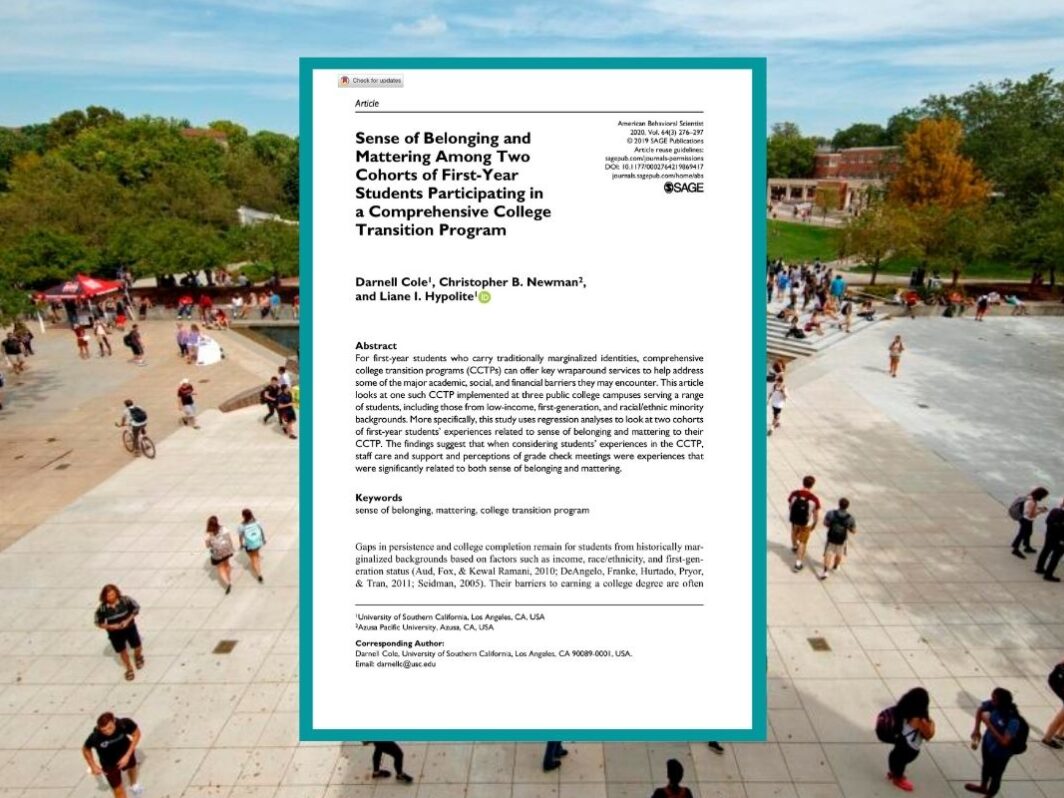For first-year students who carry traditionally marginalized identities, comprehensive college transition programs (CCTPs) can offer key wraparound services to help address some of the major academic, social, and financial barriers they may encounter.
A journal article authored by Darnell Cole, Christopher Newman, and Liane Hypolite looks at one such CCTP implemented at three public college campuses serving a range of students, including those from low-income, first-generation, and racial/ethnic minority backgrounds. The researchers look at two cohorts of first-year students’ experiences related to sense of belonging and mattering to their CCTP.
Sense of Belonging and Mattering Among Two Cohorts of First-Year Students Participating in a Comprehensive College Transition Program, published in American Behavioral Scientist, uses data from the PASS Project, a multi-year mixed-methods research project at the USC Pullias Center for Higher Education dedicated to deepening understandings of student success in postsecondary institutions through the study of the Thompson Scholars Learning Communities (TSLC), a comprehensive program at three University of Nebraska campuses.
The findings suggest, among other things, that when considering students’ experiences in the CCTP, staff care and support and perceptions of grade check meetings were experiences that were significantly related to both sense of belonging and mattering. Since little previous research has focused on both sense of belonging and mattering as it is reflected through students’ participation in CCTPs, this study extends understanding on both of these topics and makes a significant contribution to the literature.
Read the article in American Behavioral Scientist then learn more about the Pullias Center at pullias.usc.edu and take a closer look at the PASS Project at pass.pullias.usc.edu.


